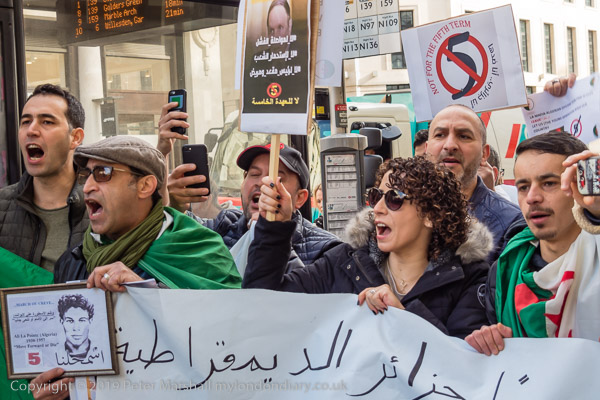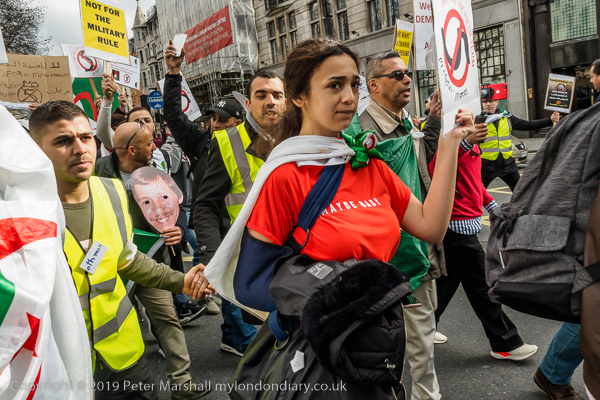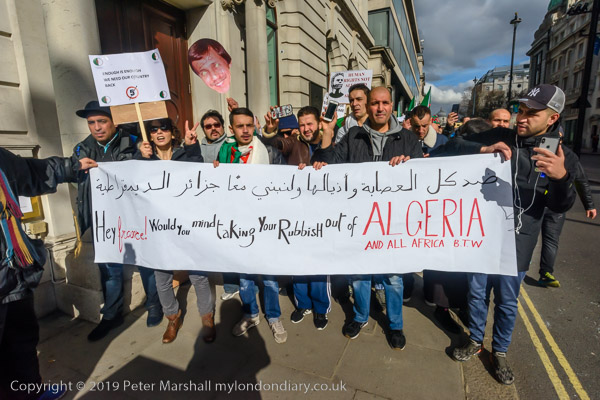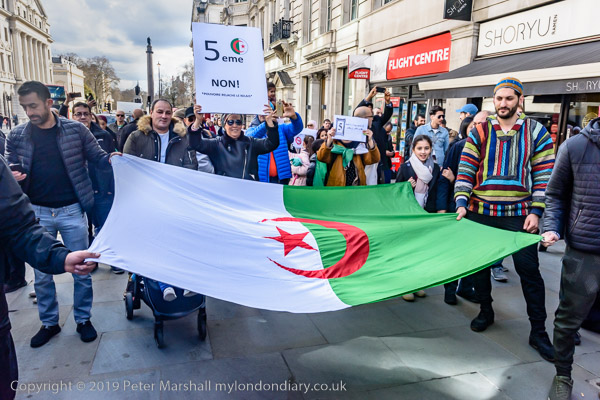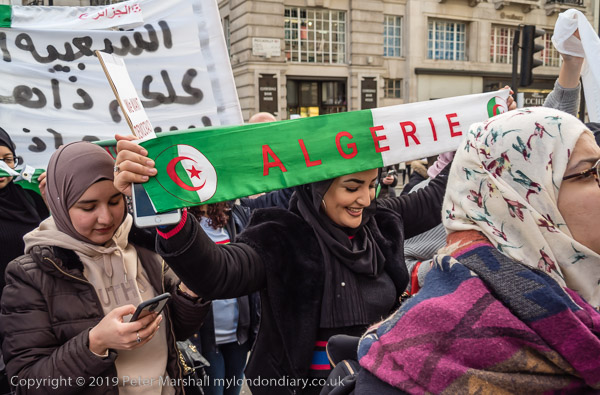Algeria, BDS and Kenya: The three protests I covered on Saturday 12th April 2014 were all about activities in other countries, though the first was calling on UK consumers to take action by boycotting goods produced in illegally occupied Israeli settlements on Palestinian land.
Don’t Buy Sodastream at John Lewis – Oxford St
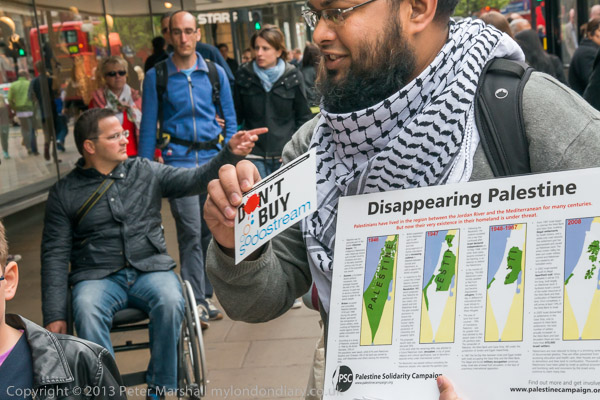
Supporters of the Palestinian Solidarity Campaign were handing out flyers in a regular fortnightly protest outside John Lewis, urging people not to buy SodaStream products which were then being made in illegal Israeli settlements on Palestinian land.
The protests are a part of the BDS campaign for boycott, divestment and sanctions of Israeli products called for by Palestinian civil society, particularly aimed at products which are made in the illegally occupied settlements.
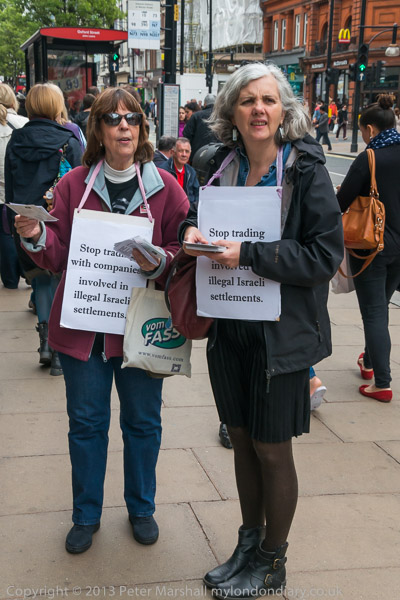
The Financial Times had recently commented that the “status of the settlements is clear in international law even if Israel chooses to ignore this and expand its colonisation of Palestinian land, while ostensibly negotiating on the creation of a Palestinian state.” Sodastream makes some of its dispensers in Ma’ale Adumim, a large Israeli settlement in the occupied West Bank. Trade with these illegal settlements is illegal under international law.
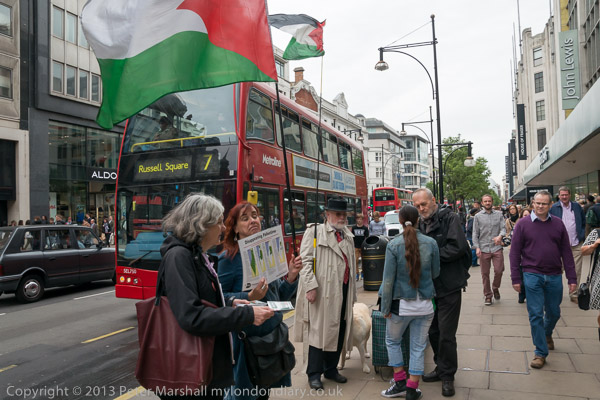
Sodastream claim that they promote peaceful coexistence between Arabs and Jews by employing around 500 Palestinians, but the FT pointed out “The way to create Palestinian jobs is to end the occupation and let Palestinians build those foundations – not to build “bridges to peace” on other people’s land without their permission.”
A former Sodastreamn worker there claims that most Palestinians working for Sodastream support the boycott “because they are against [Israel’s] occupation. But they cannot afford to personally boycott work opportunities.” The company was reported to be trying to set up a new factory inside Israel rather than the occupied territories which would mainly employ Israeli Arabs. In 2015 as a result of protests such as this one, Sodastream moved production from Ma’ale Adumim in the occupied West Bank to Lehavim in Israel proper. The company, which had been founded in the UK in 1903 but relaunched in 1998 was bought by PepsiCo in 2018.
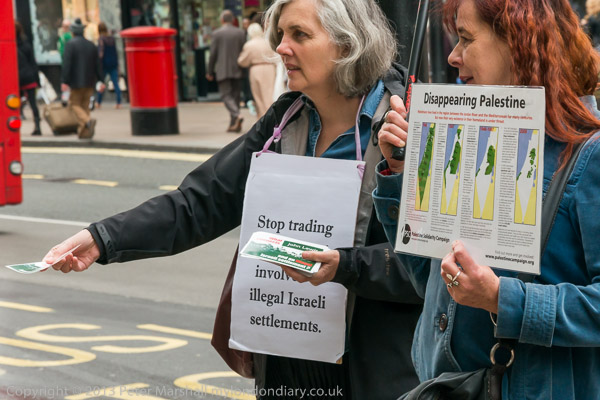
Before the establishment of the state of Israel, Palestinians (including Druze & Bedouins) owned 92% of the land, while Jews owned about 8%. The UN awarded Israel 54% of the land, though a fairly large part of this was empty desert. In the 1948 war, Israel took another 24%. In 1967 Israel occupied all of Palestine and with further settlements and the building of the separation wall since then only the Gaza strip and around 40% of the occupied West Bank remains under Palestinian control.
Don’t Buy Sodastream at John Lewis
Against the Electoral Masquerade in Algeria – Algerian Embassy, Riding House St
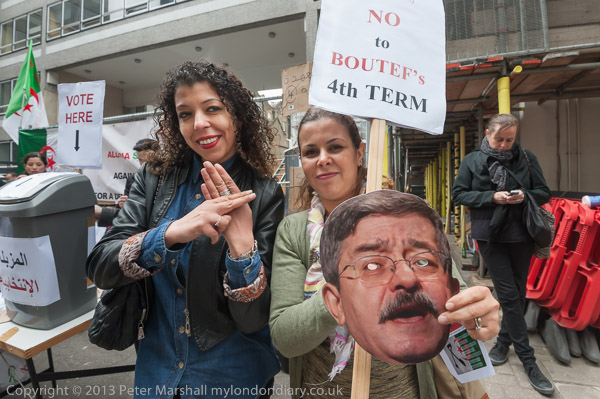
This protest in London came as presidential elections were about to begin in Algeria, electing President Bouteflika for his fourth term since 1999.
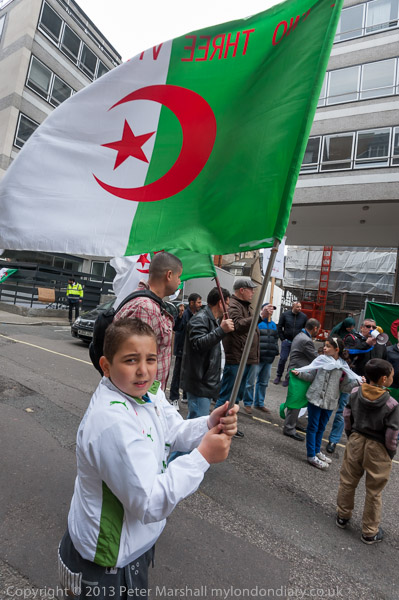
The Algeria Solidarity Campaign say these elections are a huge scam and they are “more convinced than ever that the upcoming elections will be neither free and fair, nor transparent. They will certainly not result in the election of a legitimate President, representative of the wishes of the people.”
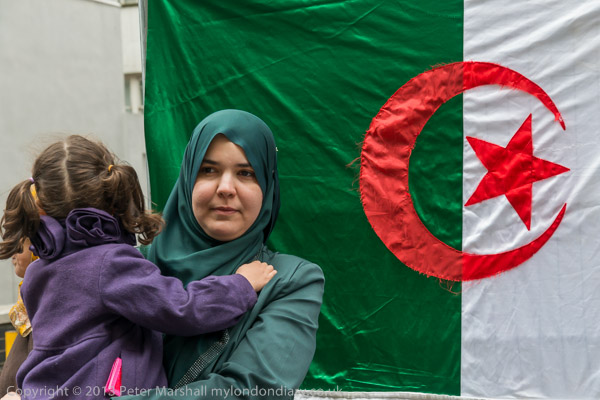
Their campaign called “for a massive boycott and/or abstention from voting and its full rejection of the ‘Presidential poll’, as it deems it to be a mere spectacle meant to maintain and cloak its authoritarian and corrupt rule in electoral legitimacy.”
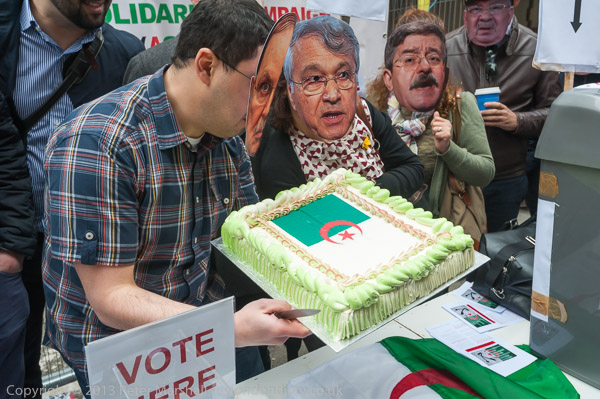
The turnout in the election was low at 51.7%, and as low as 20% in some regions, and around 10% of votes were blank or invalid. But of those who voted, 81.5% were for Bouteflika. Ill health meant he made few public appearances in his fourth term and he resigned in April 2019 after months of mass protests, dying two years later.
Against the Electoral Masquerade in Algeria
Somali Refugees mistreated in Kenya – Kenya High Commission, Portland Place
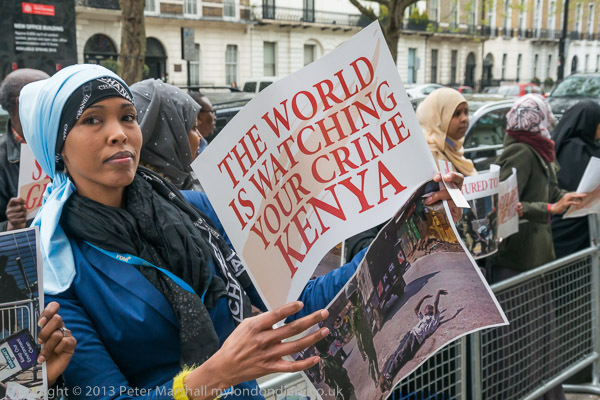
Members of the Somali community protested outside the Kenyan Embassy against the mistreatment of Somali refugees at the Kasarani Concentration Camp in Kenya. They called for the ICC to investigate the crimes being committed there.
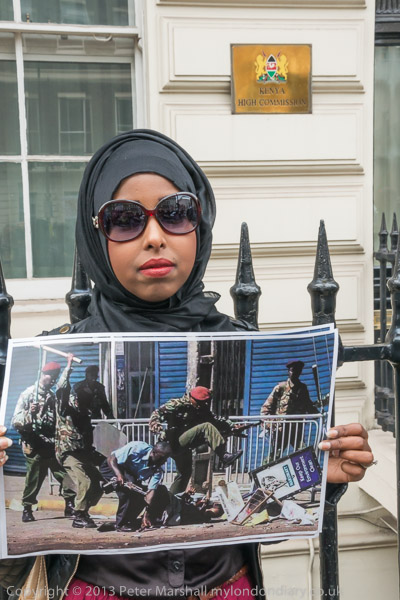
According to Reuters, the Kenyan authorities arrested more than 1,000 Somalis in mass arrests in a Somali dominated suburb of Nairobi following terrorist attacks by the Somali militant Islamic group al Shabaab. Almost 4000 were arrested and more than a thousand were held in the Kasarani sports stadium. Human Rights Watch reported many were held in packed and filthy police station cells and they saw “police whipping, beating, and verbally abusing detainees. There have been numerous credible accounts of Kenyan security forces extorting money and beating people during the arrests and in detention.”
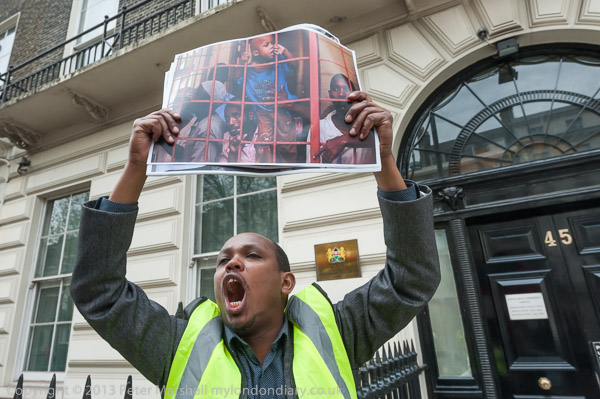
Access to the Kasarani camp by invesigators and reporters was severely restricted, and the few people allowed access “were not able to freely interview detainees in the stadium.”
The arrests followed a number of earlier incidents reported by Human Rights Watch when “Kenyan police in Nairobi tortured, raped, and otherwise abused and arbitrarily detained at least 1,000 refugees, including women and children, between mid-November 2012 and late January 2013, following grenade and other attacks.”
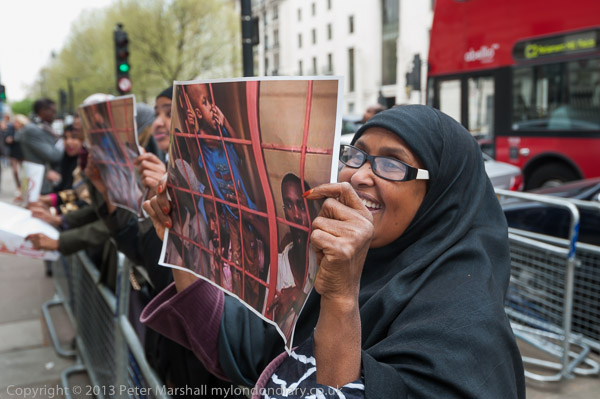
Kenya still hosts large numbers of refugees from other African countries, including around 287,000 Somalis in a total of 520,000 refugees and asylum seekers.
Somali Refugees mistreated in Kenya
